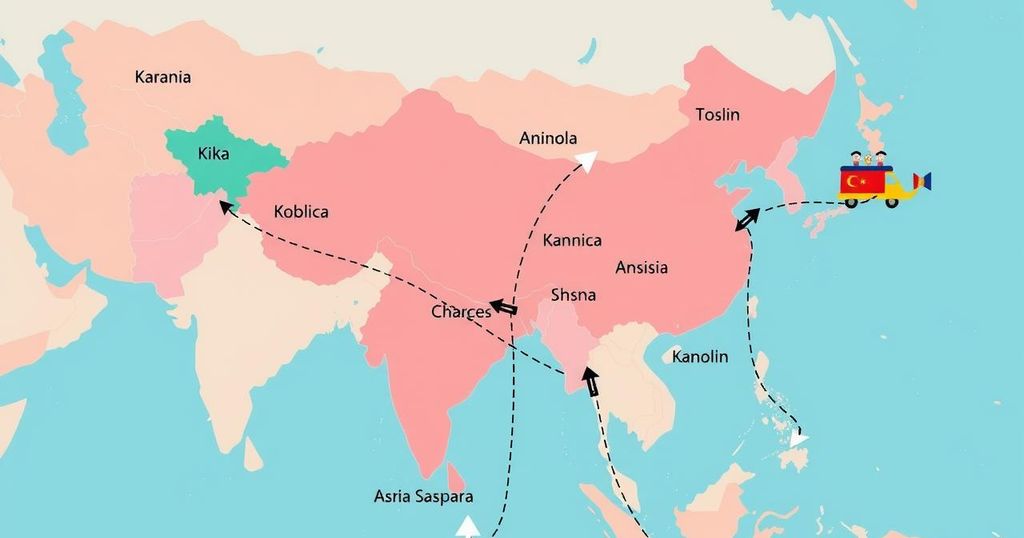Kyrgyzstan Proposes Unified Visa System for Central Asia, Echoing Schengen Model

Kyrgyzstan’s President Sadyr Japarov proposes a unified visa for Central Asian countries, similar to the Schengen visa, to facilitate travel among Kazakhstan, Kyrgyzstan, Tajikistan, Turkmenistan, and Uzbekistan. Despite previous failed attempts, the rising interest in Central Asia as a tourist hub, along with a recent border agreement, underlines the proposal’s relevance. However, challenges such as aligning immigration policies and Turkmenistan’s participation must be addressed for success.
Kyrgyzstan’s President Sadyr Japarov has proposed a unified visa system for Central Asia, facilitating seamless travel among Kazakhstan, Kyrgyzstan, Tajikistan, Turkmenistan, and Uzbekistan. This initiative aims to emulate the Schengen visa, intending to simplify cross-border travel, enhance tourism, and promote regional cooperation. Japarov’s announcement followed a significant border agreement with Tajikistan’s President Emomali Rahmon.
Two years prior, Kazakhstan and Uzbekistan initiated discussions about a similar visa plan dubbed the “Silk Road Visa,” which ultimately did not materialize. Following unsuccessful attempts due to the COVID-19 pandemic, Uzbekistan and Kazakhstan continued to work on establishing a legal framework for a regional visa by 2022. The current movement for a unified visa coincides with Central Asia’s growing recognition as a prime tourist destination.
Implementing a unified visa will necessitate aligning the nations’ immigration policies, border security regulations, and administrative practices. Lessons from the European Schengen Zone underscore the intricate challenges of managing borders and migration flows, critical issues for Central Asia to navigate. A notable challenge stems from Turkmenistan, which has a history of strict entry policies and limited integration with neighboring countries. Its response to the proposal remains uncertain, impacting the initiative’s viability.
Japarov views the unified visa plan as a catalyst for regional stability, highlighting the recent resolution of the Kyrgyzstan-Tajikistan border dispute as a pivotal achievement. Japarov expressed optimism stating that the resolution has now established enduring peace in Central Asia. As the proposal advances, its acceptance by regional leaders will greatly influence its potential. If successful, the unified visa could significantly enhance connectivity and accessibility across Central Asia.
The proposed unified visa system by Kyrgyzstan’s President Sadyr Japarov could revolutionize travel within Central Asia, fostering tourism and regional cooperation. Although previous initiatives faced hurdles, the current proposition is timely, reflecting the region’s growing importance as a tourist destination. Challenges remain regarding immigration policies and Turkmenistan’s unclear position. Nevertheless, successful implementation may lead to greater regional stability and interconnectedness.
Original Source: www.ndtvprofit.com








